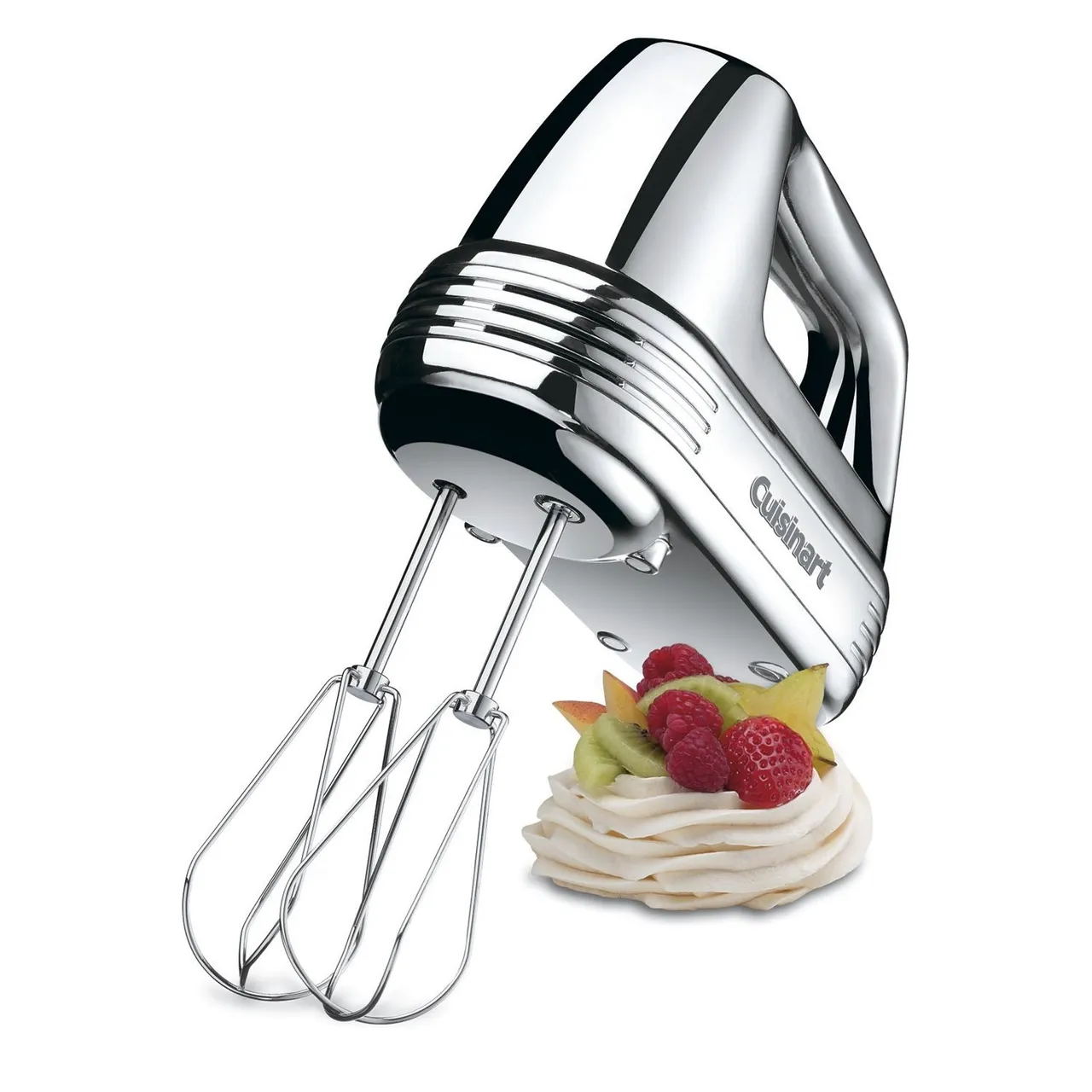Useful Tips For Making Perfect Meringues
Making meringues was a weekly routine for me and in some cases more than once a week.
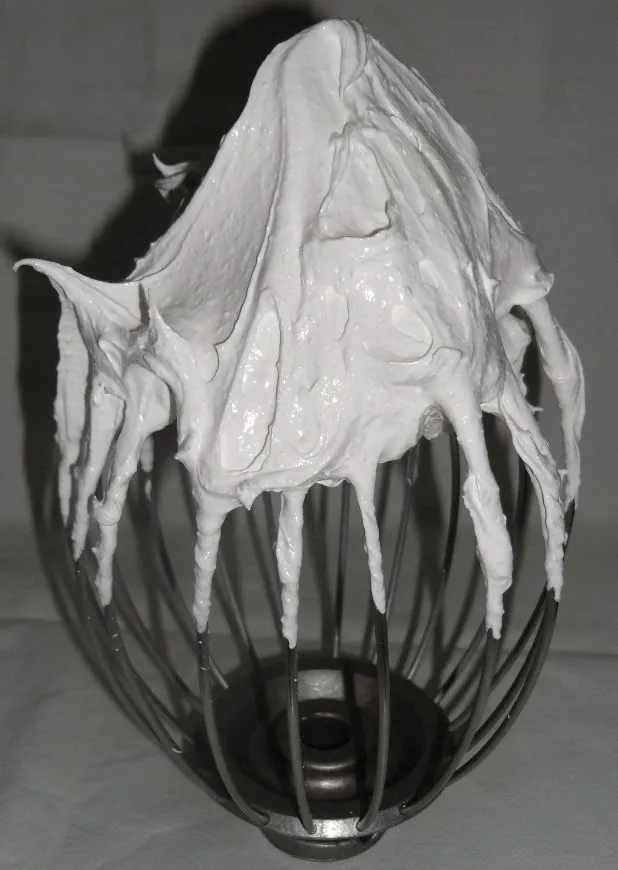
I had a little OCD going on in my baking days in my bakery mainly with always taking notes on the outcome of recipes and the slight changes I would make, always in search of the so called "perfect recipe".
Having extra eggs whites and not knowing what to do with them... I was asked many a times how to make these simply cookies.
So I thought I would put together some of the observations I made through my years in mixing this recipe up.

Egg White
When you are separating your egg whites be extra careful that no yolk falls into the bowl with the whites.
Even the smallest amount of egg yolk will prevent your meringue from whisking up to its perfect potential.
Utensils
An important thing to mention is that the bowl and whisk must be clean and dry.
Grease and even a drop of liquid will affect how the egg whites whisk up.
Type of whisk
Now I know that a poor workman always blames his tools, but trust me, the type of whisk you use with a meringue recipe does make a huge difference.
The four types of whisks I have used are;
- Hand Whisk
- Electric hand whisk
- Stand mixer
- Professional stand mixer
1. Hand Whisk -
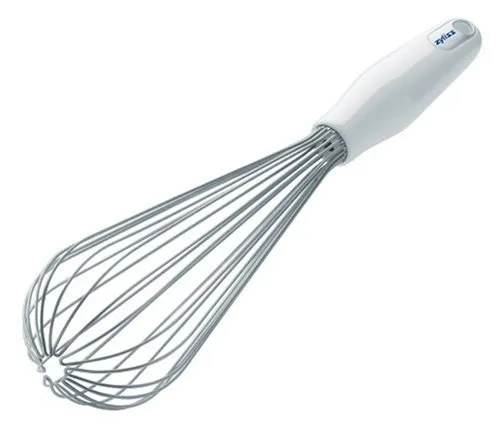
A hand whisk can be very hard work in indeed. I remember when I use to make them with my mum we would always take it in turns to whisk.
The Swiss meringue recipe calls for using a hand and even the smallest amount of egg white can take about 20 minutes to whisk, so if there are two of you all the better.
2. Electric Hand whisk –
I find it takes forever to whisk up the egg whites and sugar with an electric hand whisk.
If you are using a hand whisk , I recommend you use a narrower and taller bowl so that the whisk heads are well covered with the meringue mixture.
This helps to beat the mixture faster with better results.
In my opinion a hand whisk is not the ideal whisk to use with a meringue recipe. I find that the meringue mixture doesn't reach that perfect stiffness needed, in order to hold its shape.
The mixture should be that stiff that the whisks stand up on their own in the bowl, this whisk is OK for the softer meringue recipe to be used on pies as it is doesn't effect the overall outcome of the finished product.
What's the worst case scenario?
Your meringue mixture will be slightly sloppier
When you pipe the cookies on to the tray they will start to sag
How does this affect the meringue cookies?
They will continue to sag even in the oven, losing their shape
The meringue will be heavier and more compact and therefore giving a complete different texture
3. Stand mixer
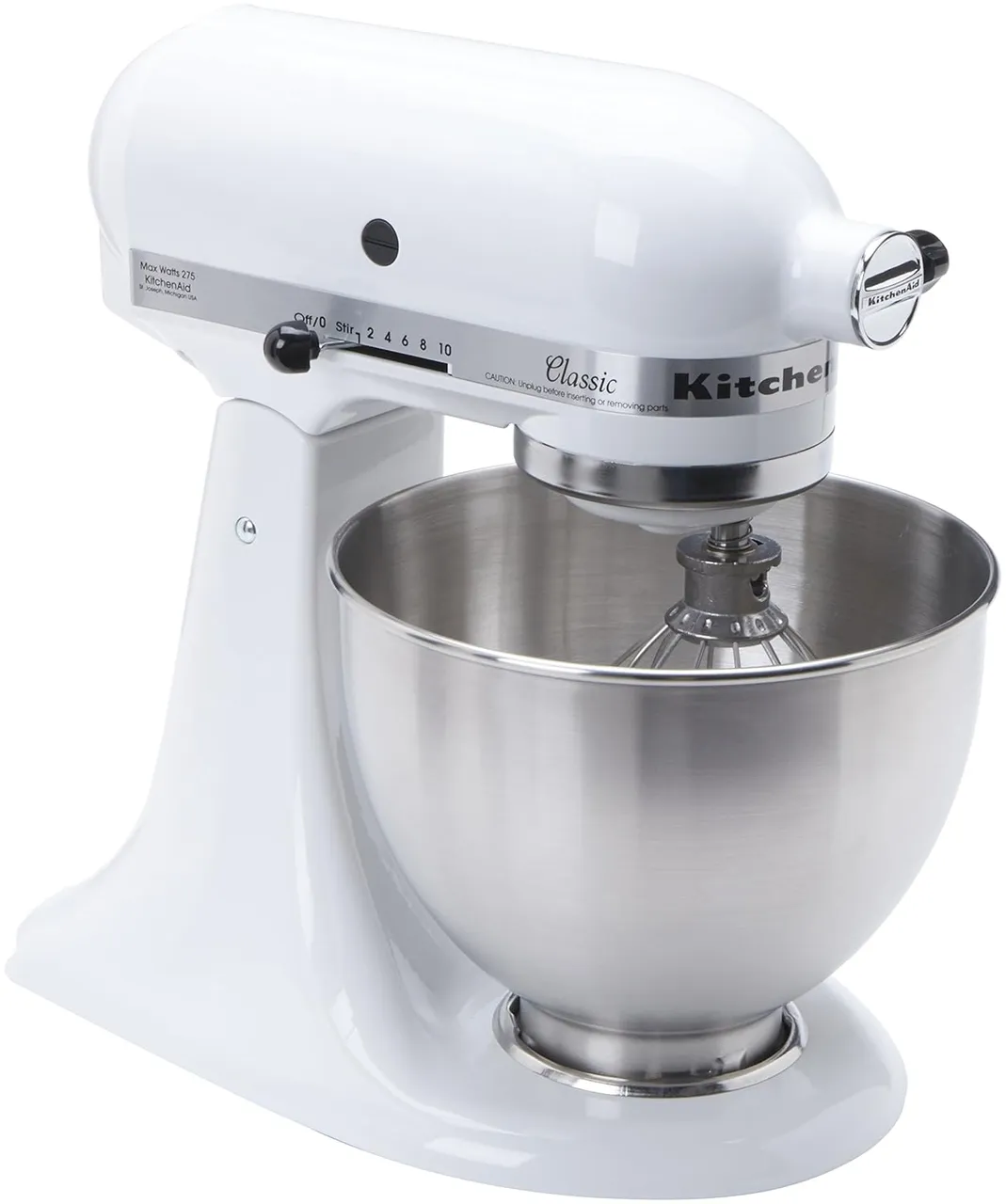
By stand mixer I mean those types of mixer's that are similar to the Kenwood Chef.
I have used one of these for years in my bakery for the smaller quantities.
This mixer is definitely better than the hand whisk, resulting in a better meringue not only in appearance but also in texture.
But...
Through my experience of using this recipe hundreds of times even this whisk doesn't reach that perfect stiffness needed.
4. Professional Stand Mixer
Now this is the whisk to use if you are
looking for a Perfect Meringue!
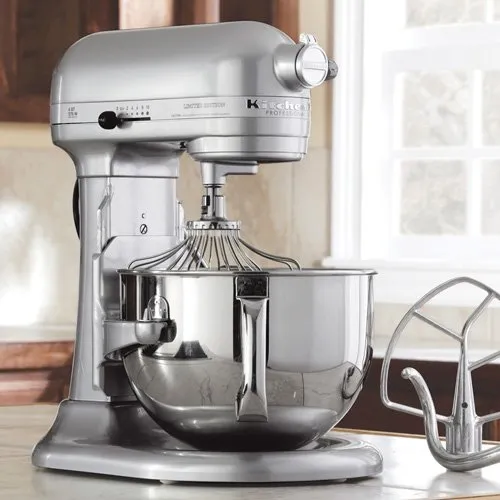
With the amount of ingredients I have indicated above it took precisely 10 minutes and the meringue mixture was as stiff as a board… well almost!
Now I appreciate the fact that not everyone has one of these mixer's and just because you haven't, doesn't mean you should not give it a go.
My sister-in-law absolutely adores these cookies and uses my meringue cookie recipe all the time with a hand whisk she is just not too fussed on the look of her cookies but the taste, and they go down a treat with her family so all is good ha!ha!
Oven Temperature
Meringue cookies are not really baked but go through a drying out process.
Having said that the Japanese Meringue recipe calls for the oven to be quite high and baking time is a whole lot shorter.
How to make meringue cookies so that they stay white?.
Needs careful attention to the oven temperature
And frequent checking as not to over baked them
So, what is the right oven temperature?
I can only really give you guide lines here as all ovens are different.
For a meringue cookie to keep its shape, the outer shell needs to form a crust pretty quickly. So the oven starts off at a higher temperature, as soon as a solid crust has formed the oven temperature is dropped.
Assuming you are using an electric home size oven, I recommend you pre-heat the oven to 70°C - 80°C . (if you have a gas oven I‘m afraid I can't help you as I have never used a gas oven)
N.B. The oven must be ready!
After you pop your meringue cookies in the oven, it should take a rough 10-15 minutes to form the crust.
No crust yet? Leave them for a few more minutes.
As soon as the meringue forms a hard shell turn the oven temperature down to 40°C. Leave for another hour and them switch of your oven and leave to meringue cookies to dry out.
How to make meringue cookies so that have a soft chewy center?
Here you need to bake the meringue a little faster, this causes the cookies to brown slightly but it forms a hard shell and soft center.
Pop your cookies in the oven at 100°C, leave for 15 minutes and switch the oven off.
Leave to dry, after an hour check to see if the cookies shell is dry, if so remove from oven not leave a little bit longer.
More About Meringue Recipes here…
-
Different Types of Meringue Recipes including a Swiss Recie and Japonese Recipe
-
A French Meringue Recipe that Italians love using!
Some great suggested books
available on Amazon
available on Amazon
McCall's Cooking School Recipe Card:

Meringue Hardcover – August 1, 2012
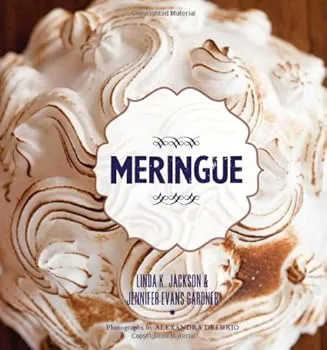
Have a Great Steeming Day Folks

Arriverderci until Soon!
Susanna @lobbylux
